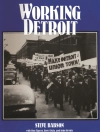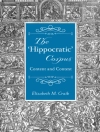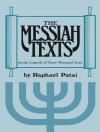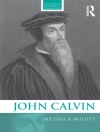In a century marked by totalitarian regimes, genocide, mass migrations, and shifting borders, the concept of memory in Eastern Europe is often synonymous with notions of trauma. In Ukraine, memory mechanisms were disrupted by political systems seeking to repress and control the past in order to form new national identities supportive of their own agendas. With the collapse of the Soviet Union, memory in Ukraine was released, creating alternate visions of the past, new national heroes, and new victims. This release of memories led to new conflicts and ‘memory wars.’
How does the past exist in contemporary Ukraine? The works collected in The Burden of the Past focus on commemorative practices, the politics of history, and the way memory influences Ukrainian politics, identity, and culture. The works explore contemporary memory culture in Ukraine and the ways in which it is being researched and understood. Drawing on work from historians, sociologists, anthropologists, psychologists, and political scientists, the collection represents a truly interdisciplinary approach. Taken together, the groundbreaking scholarship collected in The Burden of the Past provides insight into how memories can be warped and abused, and how this abuse can have lasting effects on a country seeking to create a hopeful future.
Table des matières
Introduction / Małgorzata Głowacka-Grajper and Anna Wylegała
Part I: The Memory of Holodomor
1. Idle, Drunk and Good-for-Nothing. Cultural Memory of the Rank-and-File Perpetrators of the 1932-1933 Famine in Ukraine / Daria Mattingly
2. The lieux de mémoire of the Holodomor in the Cultural Landscape of Modern Ukraine / Wiktoria Kudela-Świątek
Part II: World War II in the Ukrainian Memory
3. The War of Memory in Times of War: 9th of May Celebrations in Kyiv in 2014–2015 / Tetiana Pastushenko
4. (In)different Memory: The World War II in the Memory of the Last War Generation in Ukraine / Mykola Borovyk
Part III: Heroes or Traitors: Creating Heroic Canon
5. Symon Petliura, the Ukrainian People’s Republic, and National Commemoration in Contemporary Ukraine / Matthew D. Pauly
6. Glory to the Heroes? Gender, Nationalism and Memory / Olesya Khromeychuk
Part IV: Traces of the Lost Multiethnicity and Memory of the Ethnic Cleansing
7. Memory, Monuments and the Project of Nationalization in Ukraine. The Case of Chernivtsi / Karolina Koziura
8. Collective Memory of the Holocaust in Post-Soviet Ukraine / Anna Chebotariova
9. Extermination of the Roma in Transnistria during the World War II: Construction of the Roma Collective Memory / Anna Abakunova
10. Poland and Poles in the Collective Memory of Galician Ukrainians / Anna Wylegała
Part V: History and Politics in a Post-Soviet State: Ukraine, Russia and Independence
11. Ukraine between the EU and Russia since 1991: Does it have to be a Battlefield of Memories? / Tomasz Stryjek
12. A Desired but Unexpected State. The 90s in the Memory and Perception of Ukrainians in the Twenty-First Century / Joanna Konieczna-Sałamatin
A propos de l’auteur
Anna Wylegała is Assistant Professor at the Institute of Philosophy and Sociology, Polish Academy of Sciences. She is author of Displacement and Memory: Remembering and Forgetting in Ukrainian Galicia and Polish ‘Recovered Lands.’ Małgorzata Głowacka-Grajper is Associate Professor at the Institute of Sociology, University of Warsaw. She is author of Transmisja pamięci. Działacze sfery pamięci i przekaz o Kresach Wschodnich we współczesnej Polsce (The transmission of memory: memory activists and narratives of former Eastern Borderlands in contemporary Poland).












